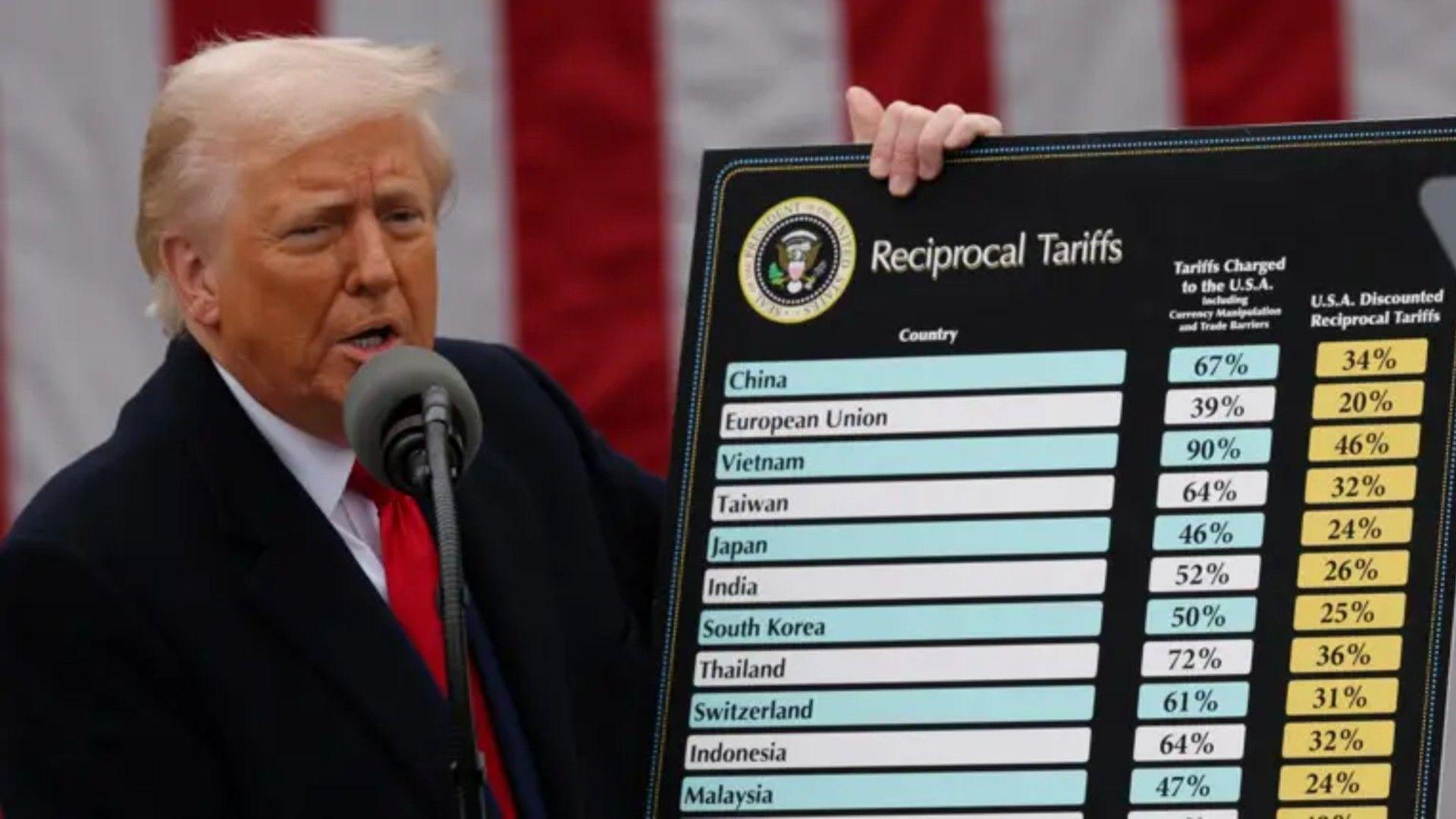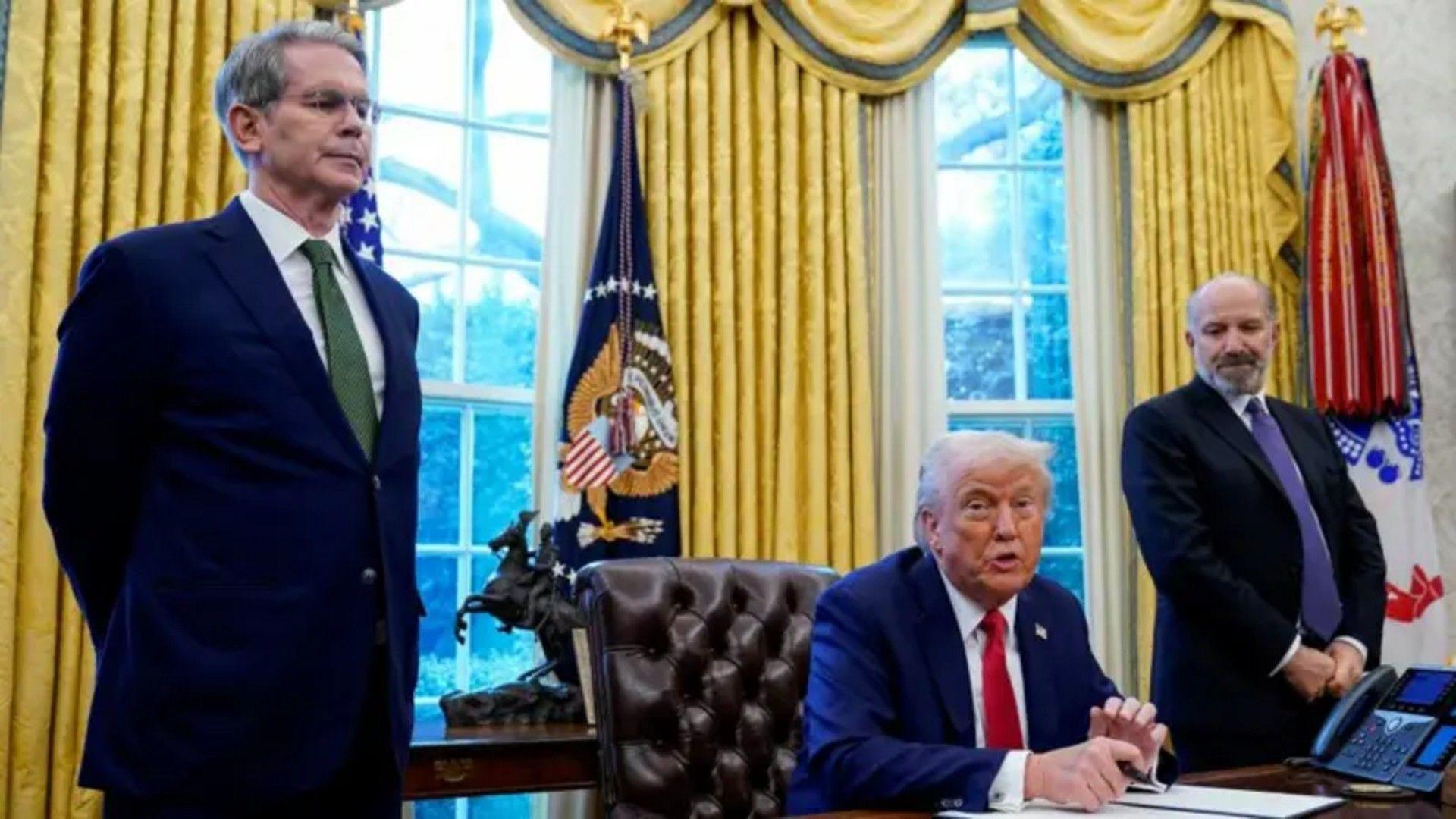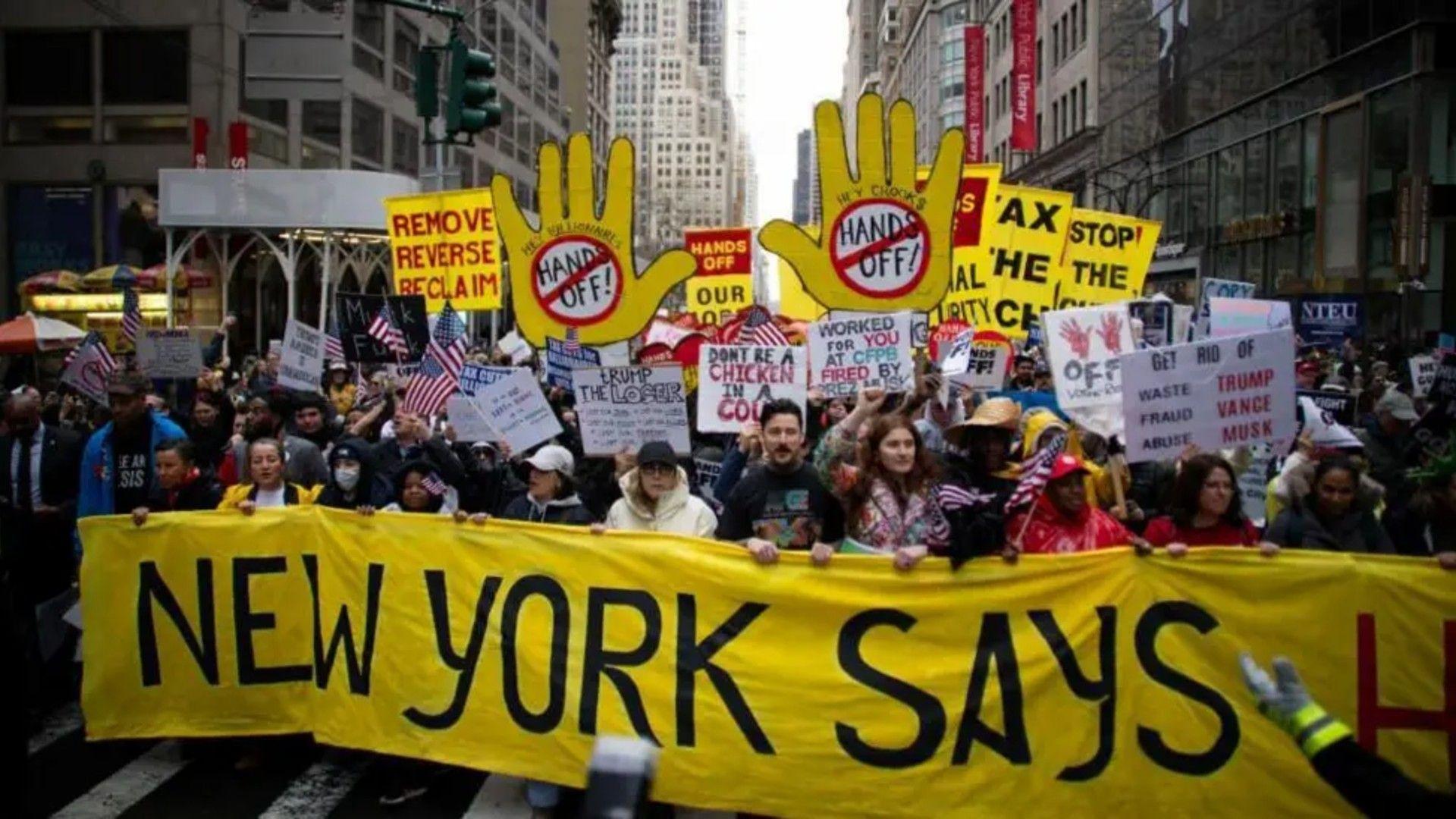
US President Donald Trump's advisers defended sweeping tariffs on imports and vowed to stay the course, despite market turmoil and calls to avoid a trade war.
In a series of television interviews, Treasury Secretary Scott Bessent played down recent stock market falls and Howard Lutnick, the commerce secretary, insisted "tariffs are coming".
Bessent said there was "no reason" to expect a recession as a result of the turmoil. "This is an adjustment process," he said.
Meanwhile, another top adviser, Kevin Hassett, said more than 50 countries have contacted Trump to try to negotiate a deal.
On Friday, all three key U.S. stock indices fell by over 5%, with the S&P 500 declining nearly 6%. This marks the most significant weekly drop for the U.S. stock market since 2020.
This week, indicating ongoing market vulnerability, Saudi Arabia’s stock exchange—which operates on Sundays—closed down almost 7%, marking its most significant single-day decline since the onset of the pandemic, according to state-run media reports.

When questioned regarding the upheaval, Lutnick stated to CBS News on Sunday that the recently implemented 10% "base rate" tariff on every import, effective from the previous day, will certainly remain enforced for an extended period of time, spanning days and weeks.
Lutnick further stated that the more severe reciprocal tariffs were still expected to proceed.
Higher custom tariffs on roughly 60 countries, dubbed the "worst offenders", are due to come into effect on Wednesday 9 April.
When asked about these tariffs, Lutnick said they were coming. "[Trump] announced it and he wasn't kidding," he said.
'Maximum leverage'
Bessent used an interview with Meet the Press on NBC to argue Trump had "created maximum leverage for himself, and more than 50 countries have approached the administration about lowering their non-tariff trade barriers, lowering their tariffs, stopping currency manipulation".
Kevin Hassett, another top economic adviser to Trump, also repeated the claim that more than 50 countries had expressed a desire to begin negotiations. Neither Hassett nor Bessent gave further details of which countries had been in touch.
Elsewhere, Indonesia and Taiwan have said over the weekend that they will not impose retaliatory tariffs after the US announced a 32% levy on imports from both countries.
Vietnam's leader, To Lam, has asked Trump to delay a 46% duty on Vietnamese exports to the US by "at least 45 days", according to a letter seen by news agency AFP and the New York Times.
However, China announced on Friday that it will impose a 34% tariff on all US imports, beginning on Thursday 10 April.
UK Prime Minister Sir Keir Starmer warned on Saturday that "the world as we knew it has gone".
Starmer said the UK government will keep pushing for an economic deal with the US that avoids some of the tariffs.
A Downing Street spokesman added Starmer and new Canadian Prime Minister Mark Carney agreed in a phone call that "an all-out trade war is in no-one's interest".
On Monday, Israeli Prime Minister Benjamin Netanyahu is expected to meet Trump for trade talks in Washington DC.
Netanyahu, speaking to reporters as he boarded a plane-bound for the US, said he is "the first international leader that is meeting with Trump" since the new tariffs were introduced.
He says this shows their "personal connection and the connection between our countries that is so essential in this time".

Anti-Trump protests were held in cities across the US over the weekend , in the largest nationwide show of opposition since the president took office in January.
Hundreds of thousands of people turned out in Boston, Chicago, Los Angeles, New York and Washington DC, among other cities, with protesters citing grievances with Trump's agenda ranging from social to economic issues.
Trump has urged the US to "hang tough" after the market turmoil but it remains to be seen how the Asian markets will react when they open on Monday.
- Trump has turned his back on the foundation of US economic might - the fallout will be messy
- Protests against Trump took place in multiple cities throughout the United States.
- Trump urges US to 'hang tough' as 10% tariffs come into effect